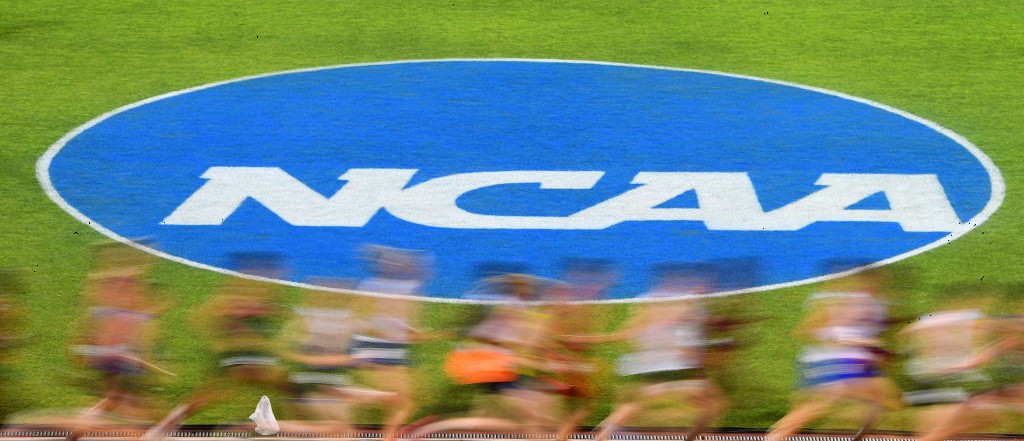
We are in the throes of a pandemic. Everyone (and everything) has been forced to adapt. Work meetings, the WNBA draft, the NFL draft, and drinks with friends are Zoom-enabled at best. We’ve even resorted to watching professional athletes play video games and virtual HORSE.
Nobody knows if “normal” will return, let alone when. And yet, the more things change, the more some stay the same.
The NCAA continues to refuse to take any sort of substantive action to support its athletes. The NCAA was able to capture headlines this week with some classic verbal gymnastics PR that leads many to believe that they are loosening their restrictions on the athlete’s ability to earn money off of their name, image, and likeness (NIL).
Don’t be fooled. The NCAA is no stranger to words equating to inaction.
The NCAA’s alleged landmark announcement only stated that its Board of Governors supports potential changes to its NIL rules. That said, nothing has actually changed. The Board took these recommendations from its NIL Working Group, which is largely composed of NCAA institution administrators.
It will still be months before the NCAA votes on any rule changes; those changes likely wouldn’t even be implemented until the 2021-2022 academic year at the absolute earliest, making it useless for athletes trying to survive through our current pandemic. This is the anti-Paycheck Protection Program. But that timeline gives the NCAA more runway to lobby D.C. in hopes of leveraging this faux movement on NIL reform into their long-desired federal antitrust exemption.
Meanwhile, the recommendations the NCAA published make it abundantly clear that the NCAA views these potential moves as a privilege for the athletes, not a fundamental right. Their guidelines are already riddled with red tape, and this is the most progressive version advanced by the NCAA. Still, you better believe the proposal is going to be neutered before any vote occurs.
Board of Governors moves toward allowing student-athlete compensation for endorsements and promotions: https://t.co/8gXqKv2W9r pic.twitter.com/U09nJBCk0J
— Inside the NCAA (@InsidetheNCAA) April 29, 2020
The world is changing at a rate with which the NCAA simply cannot keep up. And frankly, its key stakeholders have billions of reasons to lag behind.
Recently, high school superstar Jalen Green elected to jump straight from high school to the NBA G League’s new Select Team. Goodbye four months of pretending to be a college student, hello $500,000 (and access to an evergreen college scholarship, and the ability to secure endorsements, something he has already done). Shortly after Green’s announcement, former Michigan commit Isaiah Todd decided to join him rather than heading to school. UCLA signee Daishen Nix did the same simple math and joined Green and Todd.
While these announcements signaled an alarm in terms of the potential disruption of the NCAA model, many skeptics have been quick to point out that these are only three top-shelf players. This is a reasonable assessment, but the news cycles generated by these players’ choices further exposed the charade of the NCAA and have elevated an emerging trend: Elite players need not subject themselves to NCAA exploitation to make it to the NBA.
Still, for the foreseeable future, the NCAA will continue to serve as an important springboard for athletes in the broader talent pool. College ball will likely remain the best opportunity to climb from anonymity to draftability for those not projected as lottery picks in middle school for the time being.
As we begin to move past COVID-19 and grapple with the post-coronavirus world, though, the NCAA grows more vulnerable than ever, and the NBA is not the only competitor to the status quo.
Australia’s top pro league (the NBL) has already proven itself a viable training ground for emerging U.S.-born future NBA players looking to earn a living and develop their game straight out of high school — Oklahoma City Thunder wing Terrence Ferguson and 2020 draft hopefuls LaMelo Ball and R.J. Hampton have opted for its route. Stateside, the new Professional Collegiate League (PCL) will find its footing; the PCL will be the first professional college basketball league in the world providing players with salaries and college scholarships while also allowing them the opportunity to ball in the United States. (Full disclosure, I have lent my name to the PCL advisory board and strongly believe in their model.)
Beyond steady paychecks, these NCAA alternatives allow players to truly retain the rights to an invaluable asset: themselves. The ability to monetize one’s NIL is the crux of non-contact financial success, not just for superstars, but for the rank and file. A playing career is finite. Even as a professional athlete, you can only stay on the court collecting team contracts for so long.
Being an athlete (or doing anything of note) unlocks a variety of doors. Today, empowered players at the professional level routinely leverage their cultural relevance into long-term financial opportunity. Activating your strategic network while you’re still playing ball may be enough to keep a player’s finances on point long after his or her playing career is over.
While the NCAA’s announcement this week was underwhelming once you truly dig into the rhetoric, we are moving into uncharted territory for college athletics. Having alternative paths, whether they be in the United States or abroad, is going to further empower the player.
It may not be a do-or-die moment for the NCAA yet, but rest assured with every misstep along the way, they are emboldening new challengers to become legitimate threats to their precious and exploitative system. Continuing to act in its own self-interest is going to lead the NCAA further down a path of irreparable harm and competition may be just the thing to push them to the brink of irrelevance.
Luke Bonner is a former college basketball player. He is also the founder/CEO of PWRFWD and a long-time player rights activist. Follow Luke on Twitter: @LukeyBonner.
